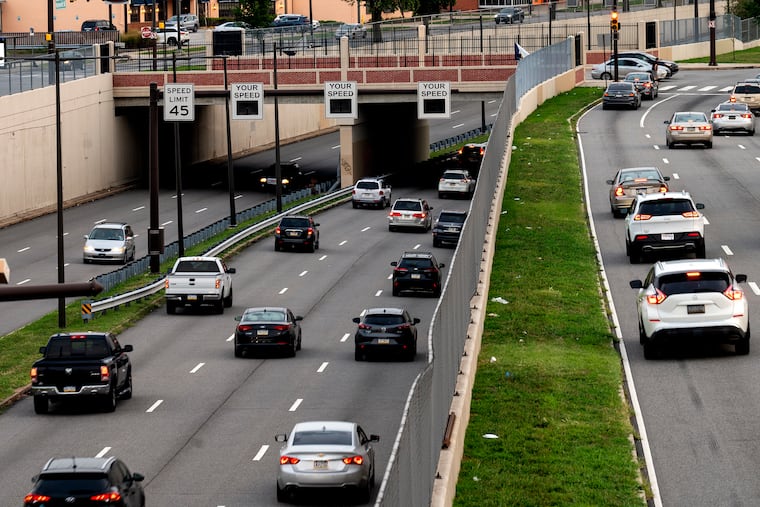Pennsylvanians are still uncomfortable sharing the road with self-driving vehicles, poll finds
The poll also found that Pennsylvanians believe autonomous vehicles are a threat to jobs, a contentious subject in the industry.

Pennsylvanians aren’t happy about the idea of sharing the road with self-driving vehicles, according to results the New York-based bipartisan polling firm RABA Research released Thursday.
When asked how "comfortable" they are sharing the road with "highly automated, driverless vehicles," over half of respondents said they were either "somewhat uncomfortable" or "very uncomfortable" with the idea.
The poll results come just a few months after lawmakers in the Pennsylvania House of Representatives passed a bill that would allow autonomous vehicle companies to test their cars on public roads without a human in the car to take over in case of emergency. The Pennsylvania Senate will consider the bill this fall.
The poll's respondents were almost evenly split between Republicans and Democrats. Sixty percent of the respondents said they would be more likely to support a politician who supported requiring a human safety operator for driverless cars and trucks, although 64% of respondents were unaware that Pennsylvania was considering new self-driving testing regulation at all.
Fully autonomous testing is legal in several other states, and members of the Senate Transportation Committee, led by Republican Wayne Langerholc Jr., are eager to keep up in order to maintain Pittsburgh's status as a hub for the autonomous industry.
Pennsylvanians' comfort level with self-driving vehicles decreased the larger the vehicle in question was, results showed. Thirty-eight percent were comfortable with sharing the road with driverless small cars, and only 17% felt OK about sharing it with autonomous trucks.
Self-driving trucks are arguably the furthest along among autonomous vehicles. Pittsburgh-based autonomous trucking companies like Aurora and Locomation are poised to disrupt logistics nationwide. Locomation hopes to deploy its autonomous trucks as soon as 2023.
The poll also found that Pennsylvanians believe autonomous vehicles are a threat to jobs, a contentious subject in the industry. Driverless truck developers point to an ongoing trucker shortage as proof that their products will not replace people, but rather offer them better roles in autonomous maintenance and operations. Other metrics are less optimistic — a May 2017 report by Goldman Sachs said that if and when autonomous vehicles hit peak saturation, the U.S. could see job losses for drivers of up to 300,000 a year.
PennDOT research conducted this year found that Pennsylvanians who are closer in proximity to autonomous vehicles are more likely to approve of them. That means people in Pittsburgh, the state's autonomous hub, approve more of driverless cars than people elsewhere in the state. Thirty-one percent of Pittsburghers PennDOT polled held a "very positive" opinion of autonomous vehicles. Only 11% of Pennsylvanians not in Pittsburgh felt the same way. PennDOT also found Pennsylvanians were confused about what automation really means. The regulator has yet to publish full results of its survey, but plans to later this fall.
Nationwide surveys have also pointed to consumers' discomfort with self-driving cars.
In 2020, just 14% of Americans who regularly drive cars said they were comfortable with the idea of riding in a self-driving vehicle, according to a survey by J.D. Power and SurveyMonkey in 2020. And 68% of Americans surveyed cited concerns about the vehicles' potential technology failures or errors, the same survey found.
RABA's survey results come from interviews collected among 679 Pennsylvania residents in late August and early September. The margin of error is just under 4%.